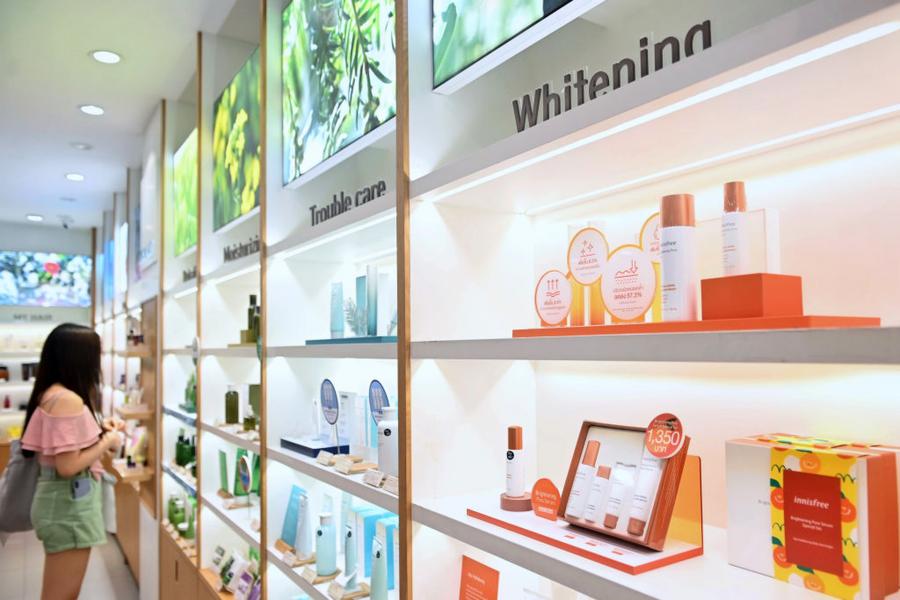At the end of 2017, Suh Kyung-bae was the second-richest person in South Korea thanks to the boom in K-beauty products. He had a net worth of about $8 billion thanks to the shares he owns in Amorepacific Group, his family's cosmetics empire. Today, he's worth $3.6 billion as a result of the shares of his company falling more than 40% since January. While the COVID-19 pandemic has hit the company very hard, the truth is signs of a struggle were apparent even before the coronavirus hit the world. The fact that the pandemic has brought about a bunch of lifestyle changes that has made makeup less essential to many women. After all, why spend the time and effort to do your face when you're just staying home and/or grocery shopping while wearing a mask?
These pandemic-related lifestyle changes have stopped the rapid wealth gains of the people behind Korean beauty products as well as the acquisitions of those companies. From 2010 to 2014, companies from outside of South Korea spent $215 million buying K-beauty brands. From 2014 to 2019, South Korea was the fourth-largest exporter of beauty products in the world and the acquisitions grew to $5 billion. Estee Lauder acquired the company behind the popular Dr. Jart in November 2019 for $1.1 billion which made its founder ChinWook Lee into a billionaire. Goldman Sachs bought a stake in facial mask maker GP Club, making its founder Kim Jung-woong one of the richest people in South Korea.

LILLIAN SUWANRUMPHA/AFP via Getty Images
Many industries are suffering in the pandemic but the K-beauty sector is facing a double or triple whammy with it. Social distancing and working from home have decreased the demand for makeup and many retail stores have closed. The U.S. is the third-largest market for K-beauty products and is down 7% in 2020. Travel restrictions have also hit K-beauty brands hard. Gone are the Chinese tourists and individual business people who would go to South Korea to buy tax-free goods in bulk and then take them back to their home country to sell. On top of all of this, Chinese customers have more access to brands from across the globe and are growing more and more focused on beauty products made in China. Whereas a few years ago a "made-in-Korea" tag on a beauty product carried a certain cache, those days are now gone. Case in point: GP Club planned to make its IPO in 2019. That didn't happen and it hasn't been rescheduled.
Suh Kyung-bae and Amorepacifc saw its revenue for the first nine months of 2020 fall by 23% compared to the same time period in 2019. The company is taking measures to reduce their overhead. For the first time, Amorepacific offered voluntary retirement to employees who have worked there for more than 15 years.
On the other hand, the pandemic has forced the beauty industry to shift from brick and mortar retail stores to online. Amorepacific has had significant growth in this area and is prioritizing that part of the business. Amorepacific is closing a number of its stores in China but believes online sales will make up half of its business there in 2021. In South Korea, the company projects that online revenue will grow from 20% to 30% of its overall business in 2021.
Cosmetics spending was down before Covid. The pandemic just escalated it. Only skincare products like moisturizers and face wash are still selling at pre-pandemic levels.
/2019/03/GettyImages-123697795.jpg)
/2021/06/GettyImages-76008551.jpg)
/2025/02/missing_profile.jpg)
/2020/09/GettyImages-1176406609.jpg)
/2021/09/GettyImages-823094282.jpg)
/2020/09/GettyImages-1028930650.jpg)
/2023/03/Matt-Cameron.jpg)
/2009/12/Denise-Richards.jpg)
/2020/04/Eddie-Vedder.jpg)
:strip_exif()/2020/06/taylor.png)
/2023/05/Jelly-Roll.jpg)
/2013/01/colin-kaepernick2.jpg)
/2010/08/GettyImages-460635372.jpg)
/2009/12/George-Strait.jpg)
/2013/03/Catherine-Zeta-Jones.jpg)
/2010/12/GettyImages-489914609.jpg)
/2009/10/Bono.jpg)
/2022/04/Charles-Payne.jpg)
/2016/12/Nico-Rosberg.jpg)
/2013/12/Ricky-Hatton.jpg)
/2020/05/michael-douglas.jpg)
/2022/11/charlie-sheen.jpg)
/2021/07/scarjo.jpg)